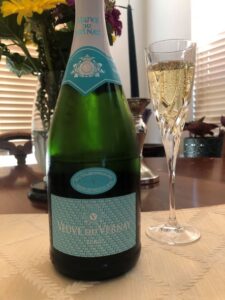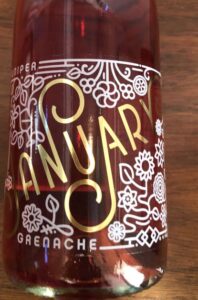The Role of Alcohol in Wine
Most wine drinkers have, at some point, tried an alcohol-free “wine.” And, if you’re like me, your reaction was not positive. My daughter and I even invested in two bottles of expensive ($35 a bottle) alcohol-free wine, hoping we might like them! But even these pricier options were incredibly disappointing and honestly, not drinkable. Both the sauvignon blanc and the cabernet sauvignon came across as sour grape juice. No aroma, no mouthfeel, not wine!
This led us to talking about the role alcohol plays in wine – and why it makes wine “wine.” In the process of researching, I learned that there are two distinct processes that can be used to create a wine with no alcohol. The first, called non-alcoholic wine, is made without ever having had any alcohol content. The mere fact that the juice was never fermented, thereby producing alcohol, means that flavors, aromas and textures are dulled. The other, de-alcoholized wine, has had the alcohol removed. This is accomplished through vacuum distillation or reverse osmosis. De-alcoholized wines have a better chance of being satisfying because they originated as a fully fermented product. The process of removing the alcohol requires costly, specialized equipment and knowledge.
However, these beverages with no alcohol still don’t satisfy those of us who love wine. First, there is little to no aroma. Much of the experience of flavor happens when aroma molecules in foods and drinks enter the nasal passages, and many of those molecules are lost in the de-alcoholization process. Second is the sensation of body or mouth feel. This is affected by the chemistry of combining juice (equivalent to the weight of water) and alcohol. Alcohol has less density, but when the two are combined, a pleasing viscosity is created. An example is the difference you experience when drinking whole milk versus skim milk. Regardless of what fat level you prefer, your mouth feels the difference. A third element is balance. With the alcohol removed, the maker may add fruit juice concentrate or other ingredients in an effort to increase the sense of balance or simply to add flavor. This can result in a beverage that is overly sweet, sour, or bitter.
In researching this topic, some writers reported more success with white de-alcoholized wine, particularly a riesling. No one reported any success with red alcohol- free wines. The consensus is that sparkling de-alcoholized wines are the most enjoyable because carbonation adds acidity and texture. Hilary and I tried Veuve du Vernay Zero from France. I chose this label because I often purchase splits of this wine for cocktails that include a splash of sparkling wine and I have found it quite satisfactory. The zero alcohol product is actually quite pleasing; it is slightly sweet, lightly carbonated and has some enjoyable fruit flavors. You would never mistake it for a traditional sparkling wine, but it would be great for a party where some people don’t want to drink or don’t want to drink much.
Another category includes non-alcoholic beverages that may be made with grapes, other fruits, herbs, aromatics, and botanicals. These beverages don’t pretend to be wine, but are packaged in 750 ml. glass bottles and are intended to be consumed like wine, often with food pairing suggestions. The photo here is January Grenache from Municipal Winemakers in Santa Barbara, CA. Tasty but sweet, it would work as an aperitif with a splash of sparkling water and a citrus fruit garnish. But this is not what most people will want to drink with dinner.
It could be fun to experiment and if you find anything you like, please post your comments on the Pursuing Pinot site.
Cheers – to real wine!



 Lisa Gorham
Lisa Gorham
Leave a comment